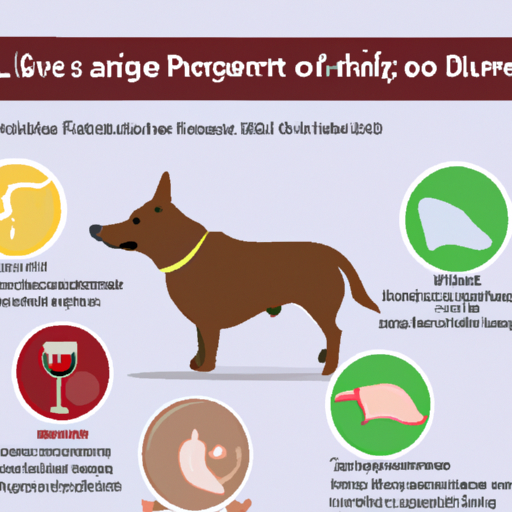“`markdown
What Causes Enlarged Liver in Dogs?
Caring for your beloved canine companion, you’re bound to encounter a few health scares that could leave you feeling overwhelmed. One such condition is an enlarged liver in dogs. Today, we’ll delve into the factors that contribute to this condition.
1. What is an Enlarged Liver?
An enlarged liver, technically known as hepatomegaly, is not a disease in itself. Rather, it is a symptom of an underlying condition. It means your dog’s liver is swelling beyond its normal size. This could be due to inflammation, fatty deposits, or even the growth of a benign or malignant tumor.
2. Causes of Enlarged Liver in Dogs
There are several potential causes of an enlarged liver in your furry friend:
- Infections: Viruses, bacteria, or parasites can cause inflammation and enlargement of the liver.
- Hepatitis: This is an inflammation of the liver that can result in swelling.
- Cancer: Both primary liver cancer and metastatic cancer can cause an enlarged liver.
- Fatty Liver Disease: This happens when excess fat builds up in the liver cells, causing the organ to swell.
3. Symptoms of an Enlarged Liver in Dogs
Your dog can’t tell you when they’re feeling unwell. Thus, as their caregiver, you should be alert to changes in their behavior or appearance. Here are some signs that might indicate an enlarged liver:
- Loss of appetite
- Weight loss
- Vomiting or diarrhea
- Jaundice (yellowing of the eyes, gums, or skin)
- Swollen abdomen
4. Diagnosis and Treatment
A proper diagnosis involves a thorough physical examination, blood tests, urine tests, and imaging studies such as X-rays or ultrasounds. In some cases, a biopsy may be required.
The treatment will depend on the underlying cause of the liver enlargement. It could range from medication to manage the infection, inflammation, or cancer, to dietary changes for fatty liver disease. In severe cases, surgery may be necessary.
5. How to Prevent an Enlarged Liver in Dogs
While you can’t prevent every cause of an enlarged liver, there are some steps you can take to help maintain your dog’s liver health:
- Ensure a balanced diet – Avoid feeding your dog too much fat and make sure they get plenty of exercise.
- Regular vet visits – Regular check-ups can help catch any potential problems early.
- Vaccination – Keep your dog’s vaccinations up-to-date to prevent infections that can cause liver problems.
Frequently Asked Questions
Q: Can an enlarged liver be cured in dogs?
A: The possibility of a cure depends on the underlying cause of the liver enlargement. For some conditions, treatment can lead to a full recovery.
Q: Can a dog live with an enlarged liver?
A: Yes, with proper treatment and management, a dog can live with an enlarged liver.
Q: How do I know if my dog’s liver is enlarged?
A: An enlarged liver can cause symptoms such as loss of appetite, weight loss, vomiting, diarrhea, jaundice, and a swollen abdomen. If you observe these symptoms, take your dog to a vet for a diagnosis.
Q: How can I help my dog with an enlarged liver?
A: Follow the vet’s treatment plan, provide a balanced diet, ensure regular exercise, and shower your dog with love and care.
“`



